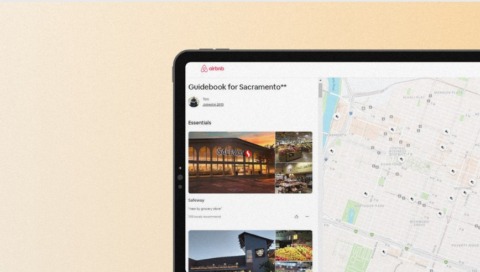Ever found yourself pondering, “How much time does it take to manage a rental property?”
If you’re diving into the world of short-term rentals, this question is as essential as the property itself. It’s the silent query that lingers in the minds of every budding investor.
The answer? Well, it’s not as straightforward as you might think. The time commitment for managing short-term rentals can be as varied as the properties themselves.
Factors Influencing Time Investment
1. Property Size and Guest Type
The clock ticks differently for a cozy studio in a bustling city and a sprawling vacation home by the beach. Consider a compact urban studio that caters to the business traveler. This guest, often on a tight schedule, checks in, attends meetings, and checks out in a span of 2-3 days. Minimal fuss, right?
Now, juxtapose this with a luxury vacation rental. Here, guests are looking for an experience. They’re likely to have more queries, more requests, and more interactions.
As the saying goes, “More space, more problems.” Or in this case, more time.
2. Experience and Evolution
Remember the first time you tried riding a bike? Wobbly and uncertain, right? But with time, you got the hang of it. Managing short-term rentals is no different.
Your first property will undoubtedly demand more of your time. But as you add more to your portfolio, you’ll find your rhythm, and things will start to flow more smoothly, and you’ll anticipate these queries and have answers ready, saving you precious time.
3. Setup and Systems
Investing time upfront in your short-term rental can pay dividends down the road. By meticulously setting up your property from the get-go, you pave the way for smoother operations in the future.
Think of it as laying a strong foundation. A well-organized property, equipped with clear instructions for guests, can drastically cut down on the number of queries and issues you’ll have to address later.
4. Team and Scaling
Going solo might seem like a good idea initially, but as you scale, you’ll realize the importance of a reliable team.
From housekeeping to maintenance, having the right people can be a game-changer. And while hiring might seem like a time-consuming task, in the long run, it’s an investment that pays off in hours saved.
Benefits of a Good Team
Delegation
Unless you decided to manage your property on your own, to take those late-night clogged toilet calls, then you’re going to need to delegate to someone who can help you.
Training
A seasoned team member can be an asset, especially when you’re scaling. They can train new hires, ensuring that the same high standards are maintained across all your properties.
Problem Solving
While it’s essential to be in the loop about significant issues, a competent team can handle day-to-day problems, ensuring smooth operations.
Time Evolution in Short-Term Rentals
1. Initial Phase
Every journey begins with a single step. And in the world of short-term rentals, this step involves a lot of time. From setting up the property to understanding the needs of your guests, the initial phase is undoubtedly the most time-consuming.
The better you set up your property, the fewer questions your guests are going to have, leading to less time to manage them. As a short term rental host you should be anticipating all of your guests' questions and answering them before they even have the opportunity to ask you.
Tim Hubbard
2. Operational Phase
With time, you’ll find your groove. Systems will fall into place, and your team will start humming like a well-oiled machine. This phase sees a significant drop in the time required, with most of it spent on reviewing performance and ensuring everything runs smoothly.
3. Building your portfolio
More properties don’t necessarily mean more time if you’ve got the right systems in place. As you scale, you’ll find that your operations become more streamlined, and the time spent per property reduces.

Don’t let poor management crush your returns.
Follow my 3-step mandatory reservation checklist to ensure your property is prepared to maximize returns.
My Personal Experience
When I first stepped into the realm of Airbnb, I was a newbie, brimming with enthusiasm but clueless about the intricacies of the trade. I remember spending endless hours setting up my property, ensuring every cushion was fluffed and every amenity was in place.
But as the days turned into months and months into years, my role underwent a transformation. Instead of being engrossed in the nitty-gritty, I found myself reviewing performance metrics and strategizing for the future.
Every new venture comes with its set of challenges, and for me, building a robust team was one of them.
Finding individuals who shared my passion and vision was no easy feat. But once I did, the game changed.
With a reliable team by my side, my short-term rentals started feeling as passive as my long-term ones, but with a revenue that was through the roof!
Actionable Steps
Review and Improve
Don’t rest on your laurels. Dive deep into your property’s performance metrics.
Listen to your guests; their feedback is invaluable. After all, who better to tell you about your property than those who’ve experienced it firsthand?
Build a Team
Assemble a team of passionate individuals who can handle the daily operations, leaving you to focus on the bigger picture.
Stay Updated
The world of Airbnb is dynamic. New trends emerge, guest preferences change, and industry best practices evolve. Stay ahead of the curve by keeping yourself updated. Knowledge, in this game, is indeed power.
So, how much time does it take to manage an Airbnb?
The answer is not set in stone. It’s fluid, changing with experience, the systems you have in place, and the team you build.
But here’s the golden nugget: with the right strategies and continuous learning, you can minimize the time you invest while maximizing returns. The world of short-term rentals is vast and ever-evolving. To thrive, one must be agile, adaptive, and always hungry for knowledge.









